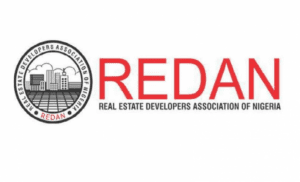
Financial expert reveals housing finance constraints in Nigeria
Despite the abundance of Multilateral Finance Institutions (MFIs), Mr Emmanuel Akinwumi, President and Chief Executive Officer, Financing & Partnerships Africa Limited, has identified poor project preparation and readiness, poor track records as reflected in a lack of a strong balance sheet, a lack of complementary infrastructures in project sites, environmental and social impacts; among others, as barriers to housing finance in the country.
Also, he cited Covid-19 repercussions, instability, and social problems, including threats of secession. poor policy discussion (affordable house ownership). and inadequacy in the policy, regulatory, and judicial environments as limits as parts of the limitations.
Others, he said, included corruption, impunity, criminality, inefficiency, weaknesses in land governance at all levels, forex crisis (dollar shortage and lack of transparency), deficit in complementary infrastructures such as a lack of reliable electricity, clean water supply, sanitation services, and an efficient transportation system, and a lack of national direction to build communities and improve existing housing stock.
Akinwumi cited the dominance of the informal sector, a lack of housing data and other information, and macroeconomic turbulence (high inflation, high interest rates, high unemployment rate, sliding disposable incomes) as limitations of housing finance in Nigeria in his recent presentation at the Association of Housing Corporation of Nigeria (AHCH) forum.
To attract multilateral finance for affordable housing projects in the country, Akinwumi suggested that challenges confronting the housing development sector must be tamed.
Be it housing or other infrastructures, he pointed out that Multilateral DFIs played a core role in development cooperation and partnership effectiveness with client countries as they “bring international finance and expertise together in support of participating countries.”
Besides, he stated that such partnership would bring provision of development finance at relatively lower interest rates and longer tenor and grace period.
Olanrewaju said, “Attracting multilateral finance for affordable housing may be achieved in Nigeria if the challenges confronting the housing development sector are tamed.
“There is a need to define Nigeria’s social housing policy to ‘affordable decent housing’ for all Nigerians.”
“This may expand focus to affordable home rental, affordable rent-to-own and rehabilitation, improvement and expansion of existing housing stock (including urban renewal, reconstruction of slums and development or satellite towns),” he said.
In his recommendations, Akinwumi said there was a need to deepen dialogue with multilateral finance institutions for housing delivery.
Besides, he pointed out the need to strengthen collaboration in Public-Private Partnership (PPPs) to foster effective housing finance and delivery, while redefining policy conversation to “affordable decent housing for all Nigerians.”
To attract multilateral finance, he urged that sustainable communities must be built, tasking the government and all stakeholders on the need to checkmate the growing insecurity in the country and achieve improvement in housing ecosystem.
“Improve macro-economic, policy, regulatory and judicial environment environment by putting round pegs in round holes in national and sub-national governance.
“Tame forex crisis and lack of transparency by evolving holistic reforms in place of ad hoc interventions. Invest in complementary infrastructures,” he said.
He called for the commercialisation of the Federal Mortgage Bank of Nigeria (FMBN) in order to build its capacity to mimic world class institutions like the CMHC Canada, which successfully take charge of housing development and finance anchor, research, data bank, advocacy, compliance, mortgage guarantee, securitisation, training and capacity building, improvement of communities, “green” advocacy, energy efficiency and leading in other housing development and finance issues, driving positive growth in the Canadian economy.
He urged the need to continue the housing development and finance advocacy.



